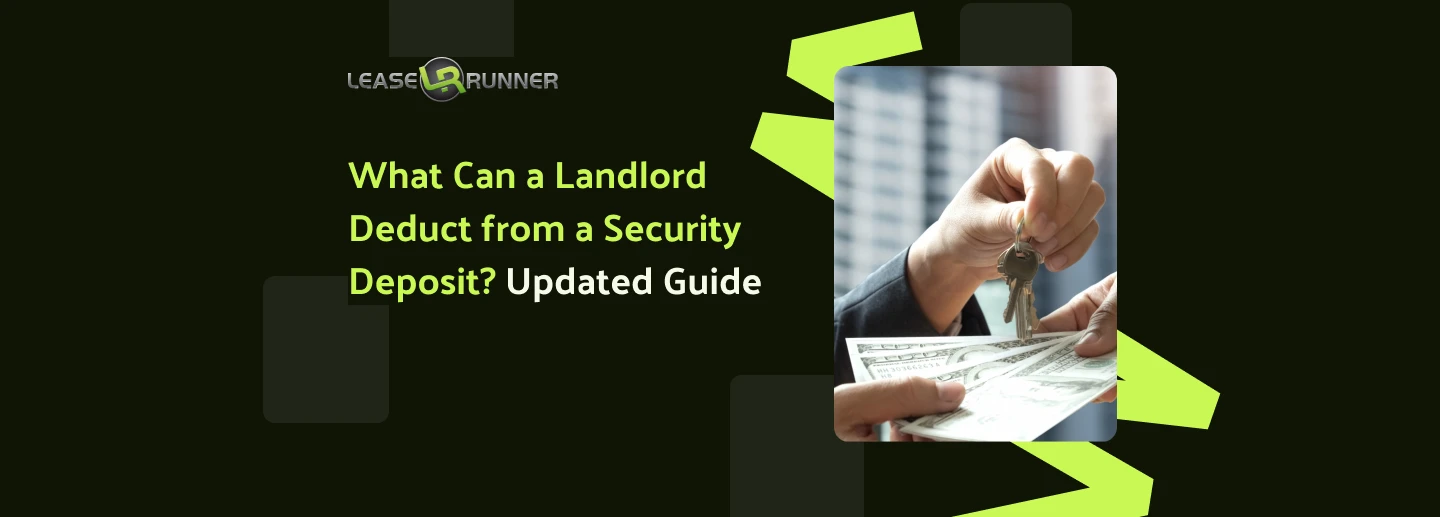What is a guarantor for an apartment? You’ll need to know the answer if you're a landlord, property manager, or even a renter. A guarantor for apartment leases often decides between a signed lease and a rejected application. Many renters (especially students, first-timers, or those with less-than-perfect credit) need someone to back them up financially. That's where the guarantor for the apartment comes in.
Today’s in-depth guide will explain what a guarantor does, the requirements for a guarantor for an apartment, and more. We'll also break down everything so you can make smart choices for your properties or your rental journey in 2025. Let’s join us now!

Quick Takeaway Table
Who Is The Guarantor? What Is a Guarantor in a Rental Agreement?
A guarantor for apartment leases is a person or company that promises to pay rent and fees if the tenant can't. This person or entity steps in only if the tenant fails to pay. Therefore, landlords usually ask for a guarantor when a renter has low income, little credit, or no rental history.
By having a guarantor, landlords get extra security. If the tenant can't pay, the landlord can turn to the guarantor for the money.
With LeaseRunner, our digital tools make it easy to screen a guarantor during the rental application process and have them complete the same online screening (background, credit, and income checks) as primary tenants. All documents are securely collected and stored, which helps landlords and tenants move through the process quickly and safely.
Guarantor vs. Co-Signer: What's the Difference?
In a residential lease, both a co-signer and a guarantor for an apartment, a condo, or any type of unit will help back up the tenant financially. Therefore, many standard apartment leases treat guarantors and co-signers the same, meaning both are held jointly and severally liable from day one.
But that is unless the lease states otherwise about the guarantor's limited responsibility. In some other context, a co-signer is responsible right from the start, so if the tenant misses rent, the landlord can go straight to the co-signer. A guarantor, on the other hand, usually only steps in if the tenant fully defaults on the lease. Their role kicks in later, not on day one.

Key Legal Differences Between Co-signers vs. Guarantors for an Apartment
What Does a Guarantor Do for an Apartment?
The main job of a guarantor for apartment leases is to be a financial safety net. But what does a guarantor do in real life? They:
- Guarantee rent: If the tenant can't pay, the guarantor has to pay the full rent.
- Cover damages: The guarantor pays if the tenant leaves damage or unpaid fees.
- Sign a contract: The guarantor signs a legal document, making them responsible for the tenant's debts.
- Help tenants get approved: Landlords are more likely to approve applicants with a strong guarantor.
In summary, how do guarantors work in practice? You contact them directly when the tenant misses payment, and they have the same payment deadline as the original tenant.
Who Can Be a Guarantor, And What Makes a Strong One?
Not everyone can be a guarantor for rental leases. Landlords want someone who is financially solid and willing to accept legal risk.
Who Qualifies as a Guarantor?
A strong guarantor usually:
- Has a high income: Often 80–100 times the monthly rent each year.
- Has great credit: A score of 700 or higher is common.
- Lives in the same country: Many landlords require this.
- Is a parent, relative, or trusted friend? Sometimes, a professional guarantor service is used.
What Landlords Should Require from a Guarantor?
In detail, we’ll dive into the documents needed further down the blog. But to keep it frank, to protect your property, ask your guarantor for rental leases for:
- Proof of income: Pay stubs, tax returns, or bank statements.
- Credit report: Shows creditworthiness.
- Valid ID: Driver's license or passport.
- References: Personal or professional, to check reliability.
How to Add a Guarantor to Your Lease Agreement?
Adding a guarantor for a rental agreement is simple, but you must do it right to protect everyone. The legal steps are clear, but missing any part can make your agreement worthless in court.
The Legal Way to Include a Guarantor
You need to follow these exact steps to make your guarantor for the apartment agreement legally binding:
- Draft a guarantor agreement: Create a separate document or lease addendum that spells out all obligations. For example, write "The guarantor for the apartment agrees to pay $1,500 monthly rent if the tenant John Smith fails to pay by the 5th of each month." Your agreement must clearly state what a guarantor does: pay rent, cover damages, and handle all tenant debts. The details should include specific dollar amounts, payment deadlines, and exactly what guarantors need to provide when called upon. LeaseRunner provides a Cosigner Agreement that is e-signed by the guarantor(s) and the landlord during lease signing.
- Get all required signatures: The tenant, guarantor for the apartment, and landlord must all sign the same document. Electronic signatures work fine, but make sure each person signs on the correct date. Never let anyone sign a blank form; fill in all details first.
- Keep detailed records: Save copies of everything in both digital and paper formats. Store the signed agreement, ID copies, and income proof from the guarantor in a secure file. This paperwork becomes crucial if you need to collect money later.
What Documents Must Be Included?
Your guarantor for the apartment lease agreement needs these key sections:
- Full names and addresses of all parties
- Reference to the original lease agreement
- Specific obligations the guarantor accepts
- Duration of the guarantee period
- Signature blocks with dates
What a Guarantor Is Legally Obligated to Do?
A guarantor for apartment leases is legally bound to specific duties that continue throughout the lease term:
- Pay all unpaid amounts: The guarantor for the apartment must cover missed rent, late fees, and any damages if the tenant defaults. For example, if your tenant owes $3,000 in back rent plus $200 in late fees, the guarantor pays the full $3,200.
- Remain liable for the whole lease period: Most guarantors for apartment requirements include responsibility for the entire lease term, including renewals, unless specified otherwise. For reference, in Texas, guarantors are only liable for the original lease term unless they agree in writing to cover renewals. Other states may have different rules, so check local laws.
- Respond to legal action: If the guarantor for the apartment refuses to pay, you can take them to court just like any other debtor. They cannot claim they didn't know about the debt or their responsibilities if everything was properly documented.
What Documents Should a Guarantor Submit?
To make sure your guarantors for apartment leases are reliable, ask for full documentation. What do guarantors need to provide? Here's what you need to collect before approval.
Proof of Income & Financial Stability
A strong guarantor for an apartment must show they can pay. Ask for these key documents:
- Pay stubs: Get at least two recent ones from the past 60 days. For example, if the guarantor for the apartment works at a bank, collect their March and April pay stubs showing gross monthly income of $8,000. This factor proves they meet the guarantor requirements for the apartment, which requires earning 80 times the monthly rent.
- Tax returns: Last year's full return gives you the complete picture. A guarantor for an apartment might show $96,000 yearly income on their 2024 tax return, proving they can return a $1,200 monthly rent.
- Bank statements: These prove funds are available for emergencies. Look for consistent deposits and balances above $5,000. A guarantor for an apartment lease with $15,000 in checking shows financial stability. LeaseRunner lets landlords request and collect these online, making things easy and secure.

Credit and Background Checks
A credit and background check is a must for any guarantor for an apartment. Our tools make this simple and safe.
- Credit report: Shows score and payment history. Look for scores above 700 and no recent late payments.
- Background check: Looks for criminal history or past evictions that might affect reliability.
Why Landlords Benefit from Accepting Guarantors?
Accepting a guarantor for rental leases gives landlords major advantages. Smart landlords use this tool to cut risk and fill units faster.
Lower Financial Risk
Landlords get a safety net with a guarantor for the apartment when tenants can't pay. With a guarantor for apartment requirements met, you call on the guarantor to cover missed payments, late fees, or damage costs.
Say your tenant loses their job and misses three months of $1,500 rent. A signed guarantor agreement lets you seek that $4,500 from the guarantor, as long as the agreement clearly outlines their responsibility. This backup plan reduces your lost income risk by up to 80%.
Another example is that a guarantor covers other costs if the tenant fails to meet their lease obligations, such as lease-breaking costs. That means if a tenant breaks the lease and owes $3,000 in remaining rent, the guarantor may be held liable.
LeaseRunner allows landlords to digitally create, sign, and store agreements that include the guarantors for better documentation. We also support secure credit and background checks, giving you confidence in the guarantor’s ability to pay.
Attract a Broader Pool of Tenants
A guarantor for apartment requirements helps you rent to more people. Students often have wealthy parents but no income themselves. Recent graduates might have good jobs but little credit history. Young professionals could earn enough but lack rental references.
Without guarantors, you'd reject these applicants. With them, you can say yes to qualified people who need backup support. This means 30-40% more applications for each unit. More applicants mean shorter vacancy periods and higher rental income.
Fill Units Faster
How do guarantors work to speed up your rental process? They give you confidence to approve borderline applications quickly. Instead of waiting weeks for perfect tenants, you can rent to good tenants with strong guarantors in days. Empty units cost you $50-100 daily in lost rent, so faster approvals save real money.
Guarantor Waiver Fees: What They Are and When to Use Them
A guarantor waiver fee helps tenants who can't find a qualified guarantor for apartment leases. Instead of getting someone to back them up, tenants pay extra money. This fee covers the landlord's risk. Many landlords use this in busy rental markets where tenants compete for units.
How Guarantor Waiver Fees Work?
The tenant pays more money in two ways. First, they can pay extra rent each month. For example, if rent is $1,200, the tenant might pay $1,300 monthly instead of finding a guarantor for the apartment. Second, they can pay one big fee upfront.
A tenant might pay $500 extra when they sign the lease. Then the landlord drops the guarantor for the apartment requirements.
Benefits for Landlords and Tenants
Guarantor waiver fees speed up the rental process. Tenants don't need to wait for what guarantors need to provide, like income proof and credit checks. Landlords get more applicants since some people can't find a qualified guarantor for an apartment. This alternative works well when the guarantor is hard to find.
Important Considerations
The fee must be written clearly in the lease. Local laws control how much landlords can charge. Some cities limit these fees or ban them completely. LeaseRunner helps landlords set up and track these fees while following all rules and keeping proper records.
Common Challenges and How to Handle Guarantors
Got problems with a guarantor for an apartment lease? You need to act quickly. Here's what to do when things go wrong.
If the Guarantor Fails to Pay
When a guarantor for an apartment won't pay up, take these tips:
- Call them now. Pick up the phone the day the rent is late. Send a letter right after. Say exactly what they owe and when you need it by. Example: "Your tenant missed June rent of $1,500. Payment is due in 5 days."
- Keep proof of everything. Save all texts, emails, and notes from phone calls with the apartment's guarantor. Write down dates and what was said. This small trick helps if you end up in court.
- Take legal steps if needed. If the guarantor for the apartment ignores you, you might need a lawyer. Small claims court works for smaller amounts. Some landlords use collection agencies that know how to handle rental debts.
- Use simple tools. Track everything in one place. This tip makes finding info easy if problems get worse.

Communicating with Guarantors
Good talk prevents most problems:
- Send short updates. Let the guarantor for the apartment know when rent comes in on time, too. A quick text saying "May rent received, all good" builds trust.
- Be clear about what they must do. Tell the guarantor for the apartment that they're on the hook for damages and late fees, not just missed rent. Put this in plain words when they sign.
- Answer questions fast. When a guarantor for the apartment calls or emails, get back to them within a day. This action stops small issues from growing into big fights.
By using this advice, you'll better handle guarantors for apartment problems and protect your rental income.
Conclusion
What is a guarantor for an apartment? A guarantor for apartment leases helps landlords cut risk and helps renters get approved. What does a guarantor do? They pay rent if tenants can't. Know your guarantor for apartment requirements first. Check their income and credit before you say yes. Set clear income rules.
Ask for proof that the guarantor for the apartment makes 80 times the monthly rent each year. If rent is $1,000, they need a $80,000 yearly income. Use a guarantor waiver fee when needed. Charge $50-100 extra monthly rent instead of requiring a guarantor. This action works well in tight rental markets.
Then, what do guarantors need to provide? Get three pay stubs, last year's tax return, and a credit report before approving anyone.
LeaseRunner makes finding and checking a guarantor for an apartment lease simple. Use LeaseRunner to help verify who the guarantor is with their ability to pay, secure your rental income, and keep tenants happy in 2025 with LeaseRunner!
FAQs
Q1. What does a guarantor do?
They step in when tenants fail to pay. For instance, tenant John owes three months of $1,50in 0 rent, totaling $4,500. The guarantor for the apartment must pay this full amount plus any late fees.
Q2. What are the requirements for a guarantor for apartment leases?
Guarantor requirements for the apartment are strict. They need a high income, usually 80 to 100 times the monthly rent yearly. For a $1,000 apartment, the guarantor for the apartment needs a $80,000-$100,000 yearly income.
They must have good credit scores above 650-700. Legal residency in the same country is required. The guarantor for the apartment must willingly accept legal risk and sign binding contracts.







